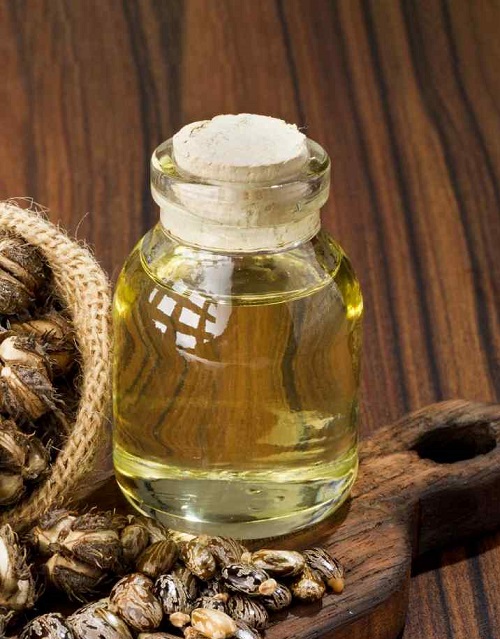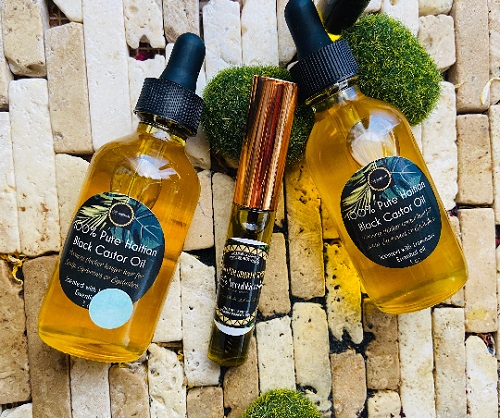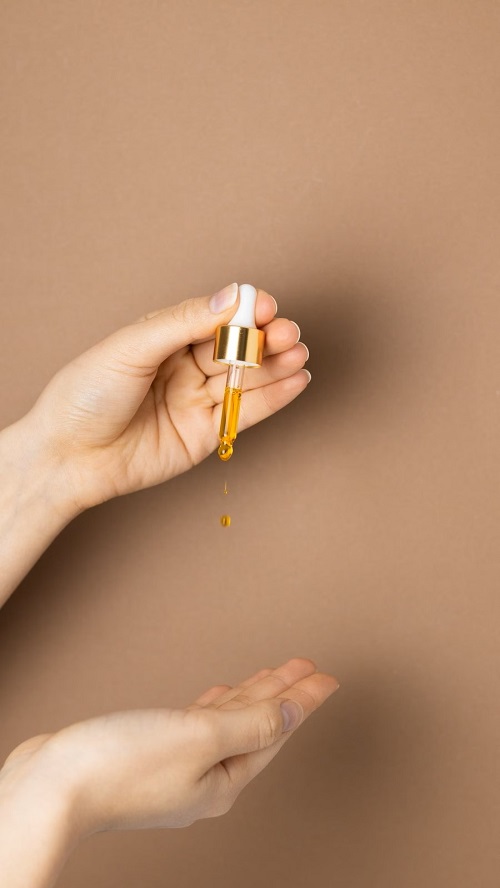Discover the natural efficacy of Castor Oil for Neuropathy, a secret weapon in alleviating pain associated with nerve damage!
Are you battling with neuropathy and seeking a natural solution? Castor Oil For Neuropathy could be the answer. This age-old remedy, renowned for its anti-inflammatory and analgesic properties, might just be the solution you’re looking for. Learn how this natural oil can offer you relief from nerve pain, enhancing your quality of life with every application!
Does Castor Oil Expire? Click Here To Learn In Depth!
What Is Neuropathy?

Neuropathy, commonly known as nerve damage, involves the disruption or dysfunction of one or more nerves, often leading to symptoms like numbness, tingling, muscle weakness, and pain in the affected areas. This condition primarily affects peripheral nerves, which are the nerves outside the brain and spinal cord. Causes of neuropathy can vary, including diabetes, certain infections, inherited disorders, and exposure to toxins.
While the symptoms and severity of neuropathy differ from person to person, the underlying issue remains the disruption of normal nerve function, which can significantly impact an individual’s quality of life. Treatment focuses on managing the condition causing the neuropathy and alleviating symptoms, aiming to improve the individual’s daily functioning and comfort.
Is Castor Oil Good For Neuropathy?

Yes, castor oil helps with neuropathy.
Loaded with anti-inflammatory and analgesic properties, castor oil is increasingly recognized as a complementary treatment for neuropathy. When applied topically, its ricinoleic acid content can potentially alleviate symptoms like pain, tingling, and numbness associated with nerve damage.
Its deep penetrating nature helps in soothing inflamed nerves, providing relief. Also, using a Castor Oil Pack For Neuropathy involves a series of steps to ensure maximum effectiveness and safety. However, its important to note that castor oil is more of a holistic approach that helps ease the symptoms and should not replace professional treatment.
How Does Castor Oil Help With Neuropathy?
Using castor oil for neuropathy can ease the painful symptoms with these potential benefits:
1. Alleviates Pain
Its analgesic properties are particularly effective in mitigating pain. When applied topically, castor oil penetrates the skin, targeting the discomfort associated with nerve damage. This makes it a valuable tool for pain management in neuropathic conditions.
2. Reduction in Inflammation
Furthermore, the ricinoleic acid in castor oil is crucial in addressing the inflammation often seen in neuropathic conditions. By reducing inflammation and swelling around the nerves, it can contribute to a decrease in discomfort and an improvement in nerve function.
3. Improved Blood Circulation
Enhancing blood circulation is another key benefit of using castor oil in neuropathy management. The physical action of massaging the oil into the skin stimulates blood flow to the affected region.
Improved circulation is essential in promoting nerve health and regeneration. Enhanced blood flow not only aids in reducing pain and numbness but also supports the overall healing process of the damaged nerves.
Learn The Most Effective Benefits Of Using Castor Oil On Skin And Hair Here!
How to Use Castor Oil for Neuropathy?
The best way to reap the benefits of castor oil for Neuropathy is to use it as a pack. A Castor Oil Pack For Neuropathy is a therapeutic application that harnesses the healing properties of castor oil to alleviate neuropathic symptoms. Here are the steps to perform it:
# Step 1: Warm the Castor Oil
Start by gently warming a small quantity of castor oil. This can be done by placing the oil in a heat-safe container and then placing this container in a bowl of hot water. The aim is to warm the oil to a comfortable temperature for application, not to make it hot, as overly hot oil can cause burns.
# Step 2: Prepare the Application Area
Cleanse the area where you plan to apply the oil. It’s important that the skin is free from dirt, sweat, or any other products. This ensures that the castor oil is absorbed effectively and reduces the risk of skin irritation.
# Step 3: Soak the Cloth
Thoroughly saturate the chosen cloth with the warmed castor oil. Make sure the cloth is fully impregnated with oil, yet not excessively so to the point where it is dripping. The aim is to have enough oil in the cloth to cover the affected area adequately without creating a mess.
# Step 4: Applying the Cloth
Carefully place the oil-soaked cloth directly onto the area affected by neuropathy. It’s important to ensure that the entire area in need of treatment is covered by the cloth, allowing the castor oil to work effectively on the targeted nerves.
# Step 5: Covering with Plastic Wrap
Once the cloth is in place, cover it completely with plastic wrap. This step is essential as it not only helps to hold the heat from the heating pad or hot water bottle but also prevents the castor oil from staining your clothing or furniture.
The plastic wrap should be snug but not too tight, to allow for comfortable breathing and circulation.
# Step 6: Applying Heat
Place a heating pad or a hot water bottle over the plastic-wrapped area. The application of heat is a crucial part of the treatment as it enhances the penetration of castor oil into the skin, thereby increasing its effectiveness in relieving neuropathy symptoms.
Ensure that the heat is at a comfortable temperature to avoid any burns or discomfort.
# Step 7: Resting and Relaxing
Allow the pack to remain in place for about 30 to 60 minutes. During this time, it’s beneficial to rest and relax, letting the castor oil pack do its work. This period can be used for meditation, reading, or simply lying down in a comfortable position.
# Step 8: Cleaning Up
After the treatment time is up, remove the pack and cleanse the treated area with a mild soap to remove any residual castor oil. This is important to avoid any potential skin irritation from the oil. The cloth used for the pack can be stored in a plastic bag and placed in the refrigerator for reuse. It’s recommended to wash or replace the cloth after a few uses to maintain hygiene.
For the noticeable results, it’s important to repeat this process regularly. Daily applications or following a schedule recommended by a healthcare professional can be beneficial. Consistency in treatment often leads to more effective relief of symptoms.
Learn about Using Castor Oil Pack for Knee Pain Here
Precautions To Consider
When considering the use of Castor Oil For Neuropathy, it’s important to be aware of several precautions to ensure safety and effectiveness:
- Before applying castor oil, conduct a patch test to check for allergic reactions. Apply a small amount of oil to a patch of skin and wait for 24 hours to see if there’s any adverse reaction.
- Always use high-quality, pure, cold-pressed castor oil. Impurities or additives in lower quality oils can cause skin irritation or reduce the effectiveness of the treatment.
- Do not apply castor oil on open wounds, cuts, or broken skin, as this can lead to infections or irritations.
- Women who are pregnant or breastfeeding should consult a healthcare professional before using castor oil for neuropathy, as its effects in these conditions are not fully understood.
- Be mindful of the amount of castor oil used and the frequency of application. Overuse can lead to skin irritation or other unwanted effects.
- Individuals with certain health conditions, particularly those related to skin or circulatory issues, should consult a doctor before using castor oil as a treatment for neuropathy.
A Quick Review
Castor oil stands out as a promising natural option for people battling neuropathy. Its ability to reduce inflammation and pain provides a supportive way to ease neuropathic discomfort.
Before diving into its use, it’s wise to take certain steps like allergy testing and getting a nod from your healthcare provider. This ensures that castor oil is a safe and beneficial part of your neuropathy care routine.
Keep in mind, though, that castor oil is best used as one piece of a larger treatment puzzle. It’s great for easing symptoms, but it’s most effective when paired with professional medical guidance and other therapeutic approaches.
Learn about Using Castor Oil Pack for Fibroids Here
FAQs
1. What Is Neuropathy And how Can Castor Oil Help?
Neuropathy refers to nerve damage that causes pain, numbness, and weakness, primarily in the hands and feet. Castor oil, known for its anti-inflammatory and analgesic properties, can help alleviate these symptoms by soothing inflamed nerves.
2. Is Castor Oil Effective For Diabetic Neuropathy?
Diabetic Neuropathy, a common complication of diabetes, can benefit from the use of castor oil. Its anti-inflammatory properties may reduce the pain and discomfort associated with this condition. However, it’s important for diabetic patients to consult a healthcare provider before using castor oil as part of their treatment plan.
3. Can Castor Oil Be Used For Peripheral Neuropathy?
Yes, castor oil can be used to manage symptoms of Peripheral Neuropathy. Its soothing properties can help in reducing pain and inflammation in the peripheral nerves.
4. How Should Castor Oil Be Applied For Neuropathy Relief?
Castor oil can be massaged directly onto the affected areas, or used in a castor oil pack, where a cloth soaked in the oil is applied to the skin, often with added heat for deeper penetration.
5. Are There Any Side Effects Of Using Castor Oil For Neuropathy?
Generally, castor oil is safe for topical use. However, some people may experience skin irritation or allergic reactions. It’s advisable to do a patch test before widespread use and consult a healthcare professional if any adverse reactions occur.
6. How Often Should Castor Oil Be Applied For Neuropathy?
The frequency of application can vary, but many find relief by using castor oil or a castor oil pack 3-4 times a week. It’s important to monitor your body’s response and adjust the frequency accordingly.



